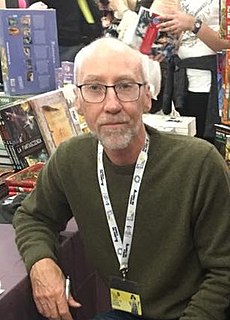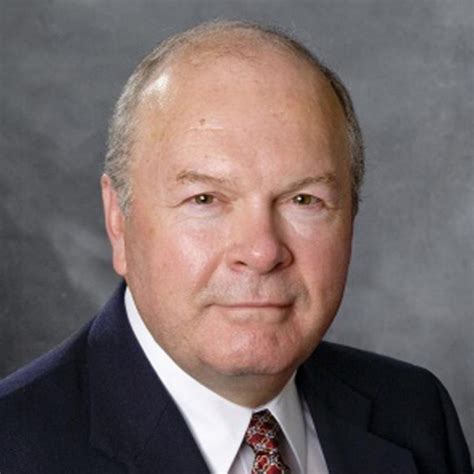A Quote by Victor Hugo
In this way, his unhappy soul struggled with its anguish. Eighteen hundred years before this unfortunate man, the mysterious Being, in whom all the sanctities and all the sufferings of humanity come together, He too, while the olive trees trembled in the fierce breath of the Infinite, had brushed away the fearful cup that appeared before him, streaming with shadow and running over with darkness, in the star-filled depths. (pg. 236)
Quote Topics
Anguish
Appeared
Away
Before
Being
Breath
Come
Cup
Darkness
Depths
Eighteen
Fearful
Fierce
Filled
Had
Him
His
His Way
Humanity
Hundred
Hundred Years
Infinite
Man
Mysterious
Olive
Olive Trees
Over
Running
Shadow
Soul
Star
Streaming
Struggled
Together
Too
Trees
Unfortunate
Unhappy
Way
While
Whom
Years
Related Quotes
The Christian religion is only for one who needs infinite help, therefore only for one who feels an infinite need. The whole planet cannot be in greater anguish than a single soul. The Christian faith - as I view it - is the refuge in this ultimate anguish. To whom it is given in this anguish to open his heart, instead of contracting it, accepts the means of salvation in his heart.
His cheeks were slick with tears that spilled over his diamond eyes, a ceaseless flow he neither noticed nor appeared to care about. And she had a feeling it was going to be a while before the leaking stopped-an inner artery had been nicked and this was the blood of his heart, spilling out of him, covering him.
What is a poet? An unhappy man who hides deep anguish in his heart, but whose lips are so formed that when the sigh and cry pass through them, it sounds like lovely music.... And people flock around the poet and say: 'Sing again soon' - that is, 'May new sufferings torment your soul but your lips be fashioned as before, for the cry would only frighten us, but the music, that is blissful.
There was a man that hated his footprints and his shadow, so one day he thought that if he ran fast enough, his footprints and shadow would not be able to follow him and then he never ever had to look at them again. He ran and he ran as fast as he could, but the shadow and the footprints had no problems keeping up to him. And he ran even faster and all of a sudden he fell dead to the ground. But if he been standing still there hadn't been any footprints and if he had been resting under a tree his shadow had been swallowed of the trees shadow.
She was darkness and he was darkness and there had never been anything before this time, only darkness and his lips upon her. She tried to speak and his mouth was over hers again. Suddenly she had a wild thrill such as she had never known; joy, fear, madness, excitement, surrender to arms that were too strong, lips too bruising, fate that moved too fast.
Her image had passed into his soul for ever and no word had broken the holy silence of his ecstasy. Her eyes had called him and his soul had leaped at the call. To live, to err, to fall, to triumph, to recreate life out of life! A wild angel had appeared to him, the angel of mortal youth and beauty, an envoy from the fair courts of life, to throw open before him in an instant of ecstasy the gates of all the ways of error and glory. On and on and on and on!
Diamonds are found only in the dark bowels of the earth; truths are found only in the depths of thought. It seemed to him that after descending into those depths after long groping in the blackest of this darkness, he had at last found one of these diamonds, one of these truths, and that he held it in his hand; and it blinded him to look at it. (pg. 231)
I must, before I die, find some way to say the essential thing that is in me, that I have never said yet -- a thing that is not love or hate or pity or scorn, but the very breath of life, fierce and coming from far away, bringing into human life the vastness and the fearful passionless force of non-human things.
My grandfather would have loved to have met you," he told her huskily. "He would have called you 'She Moves Trees Out of His Path.' " She looked lost, but his da laughed. He'd known the old man, too. "He called me 'He Who Must Run into Trees,'" Charles explained, and in a spirit of honesty, a need for his mate to know who he was, he continued, "or sometimes 'Running Eagle.' " " 'Running Eagle'?" Anna puzzled it over, frowning at him. "What's wrong with that?" "Too stupid to fly," murmured his father with a little smile.
I was a stray acquaintance whom he had never seem before and would never see again, a wandered for a moment through his monotonous life, and some starved impulse left him to lay bare his soul. I have in this way learned more about men in a night than I could if I had known them for 10 years. If you are interested in human nature, it is one of the greatest pleasures of travel.
Man is concentric: you have to take fold after fold off of him before you get to the centre of his personality. You must get below his animal nature, habits, customs, affections, daily life, and sometimes go away down into the heart of the man, before you know what is really in him. But when you get into the last core of these concentric rings of personality you find a sense of the infinite-a consciousness of immortality linked to something higher and better.
He who had known us before we were even born came to know us infinitely better as he knelt in Gethsemane and as he hung on the cross of Calvary. We come to know those we serve (Mosiah 5:13; compare 1 John 2:3-4). And we certainly come to love and treasure those for whom we sacrifice. Conversely, the depth of the pain we feel in behalf of a loved one is intimately tied to the depth of the love we bear that loved one. Thus only a being filled with infinite and eternal love could perform an infinite and eternal sacrifice.





































